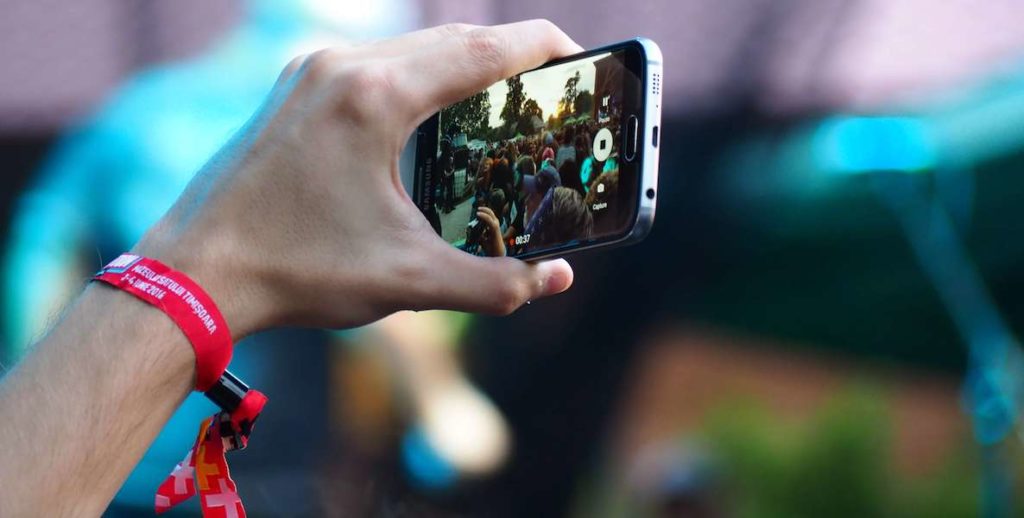Robert Bork, a controversial legal scholar, thought America was degenerating. So, in 1996, he wrote a book called Slouching Toward Gomorrah. Gomorrah, if you’re unaware, was a biblical city that God burned for its sins.
Recently, a man raped a woman on a crowded SEPTA train. The train riders sat idle, not even dialing 911. We are now sprinting toward Gomorrah, blissfully swinging our feet as we wait for God to strike a match. What is happening?
Before answering this question, we must consider what the train riders did. They were “filming” the rape and “may have posted it on social media,” according to 6ABC Action News. This is reprehensible. No one on that train felt a responsibility to stop what was happening. Instead, they felt compelled to record it.
This reveals the root of our issue: Social media has given us permission to be voyeurs, to film life rather than live it, and to lose our humanity along the way.
Social media has given us permission to be voyeurs, to film life rather than live it, and to lose our humanity along the way.
In light of the flogging that social media giants have been receiving in recent weeks, the timing of this incident adds fuel to the bipartisan bonfire. Facebook, Instagram, and Twitter are getting pummeled because of their addictive qualities, harmful effects on teenagers, and the proliferation of misinformation.
When testifying before Congress, Frances Haugen, a former Facebook, Google, Yelp, and Pinterest employee turned whistleblower, said that Facebook, which owns Instagram, “harms children, sows division and undermines democracy in pursuit of breakneck growth and ‘astronomical profits.’”
One of the studies at the center of this controversy suggests that Instagram fosters “social comparison, social pressure, and negative interactions with people.” The study concentrates on the mental health effects of social media, which has been the focus of Congressional inquiries. But few have shed light on how social media nourishes social irresponsibility.
To my chagrin, I am a Gen-Z’er. So, I understand social media. And from where I stand, popular social media challenges nourish the impulse to record and post. These challenges dare people to record themselves and others being reckless.
RELATED: Rape survivors deserve more chances to share their stories
Take, for example, the “Devious Lick” challenge where students destroy school property and post it on TikTok. Yes, school-age people are posting themselves committing crimes. Students have gotten arrested for stealing bathroom mirrors, sinks and entire toilets from schools.
On top of an arrest, a concern should be: How will I use the restroom in my own school if I’ve taken all the toilets? Such obvious consequences seem to escape the young people that partake in the challenge.
Other social media fads, while equally stupid, are less serious, like the “Milk Crate Challenge.” To do it, people form a pyramid with milk crates and attempt to scale them. Needless to say, except that this subject obliges me to say it, milk crates cannot support human weight. So, Milk Crate challengers often injure themselves, falling off the crates. In response to the trend, the U.S. Food and Drug Administration playfully said they cannot regulate milk. But they recommend enjoying “a nice glass” of 2% milk and returning “all those crates.”
On a more serious note, while doing the “Milk Crate Challenge,” people have sustained “shoulder dislocations and rotator-cuff tears, ACL and meniscus tears, broken wrists and even spinal-cord injuries.” All for social media. It is absolutely mindless. And those are just recent trends.
This is a community problem. Everyone has to make a decision to help when they see their neighbor in distress—even dialing 911 can help, which apparently was too arduous for those train riders.
There is a long list of foolish social media trends going back at least a decade. Most of them consist of filmed stupidity. But we’ve graduated from that. Now, people are filming human suffering for fodder—as those SEPTA train riders did when that poor woman was being assaulted. We are on a bleak path, and we have been for a while.
In 2015, a woman was trapped inside a burning car. Instead of breaking the woman out of the car, at least six people stood by recording. She would have burned alive if a 19-year-old Good Samaritan did not pull her out through her car window. Again in 2019, there was floodwater in a New York City subway. An older-looking gentleman got swept up by the water and fell. Just like the SEPTA riders, someone recorded instead of helping the man back up.
There has to be a #MeToo-esque social movement to stop this. Like most of our problems, this cannot be regulated or financed away. This is a community problem. Everyone has to make a decision to help when they see their neighbor in distress—even dialing 911 can help, which apparently was too arduous for those train riders.
In a society as enlightened and developed as ours, it should be impossible for a woman to be raped on a crowded train. We must do better.
Jemille Duncan is a senior at Multicultural Academy Charter School.
The Citizen welcomes guest commentary from community members who stipulate to the best of their ability that it is fact-based and non-defamatory.
RELATED
Ideas We Should Steal: Fighting Domestic Abuse During Covid-19

